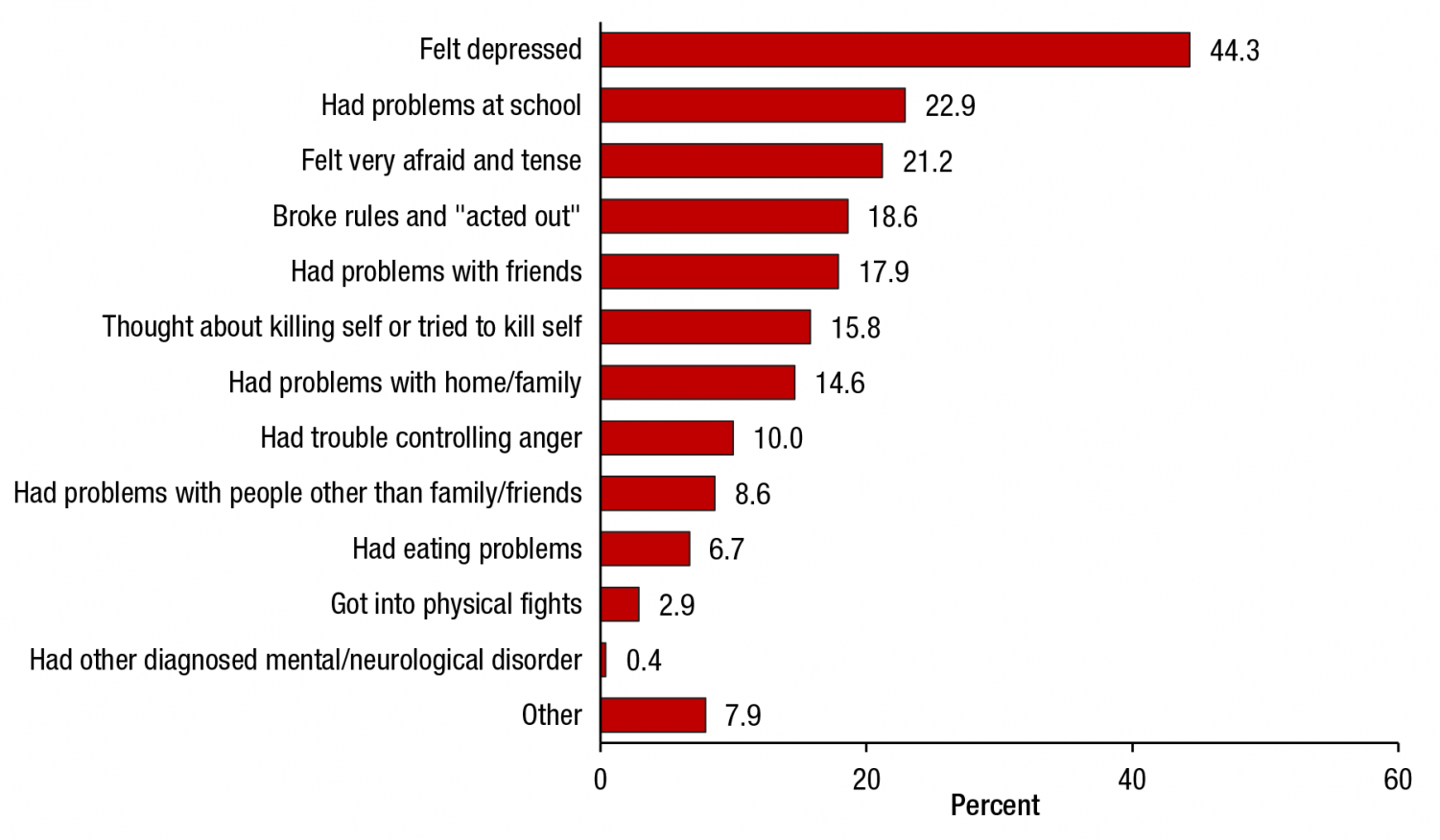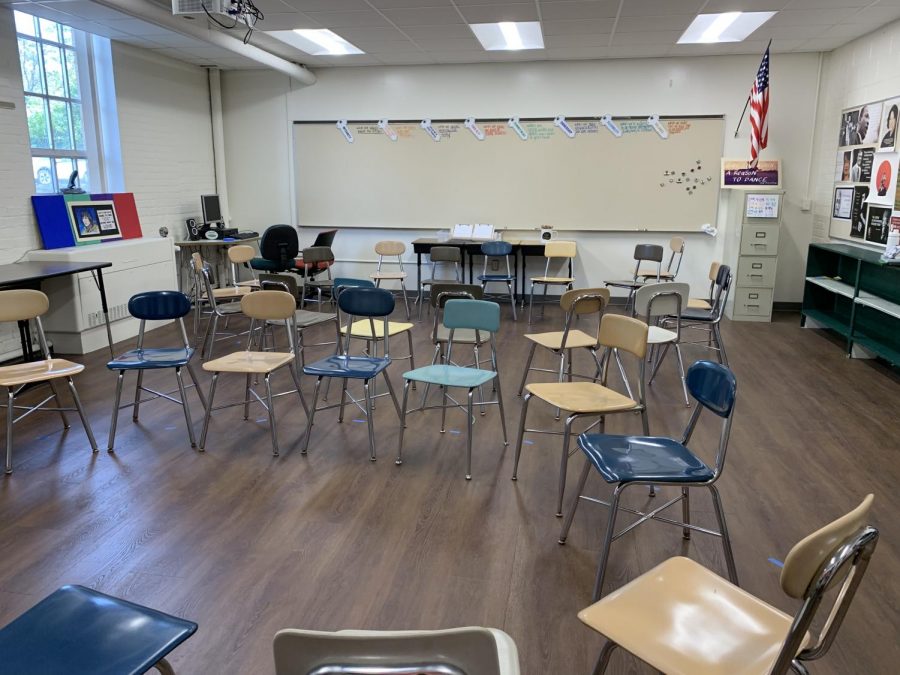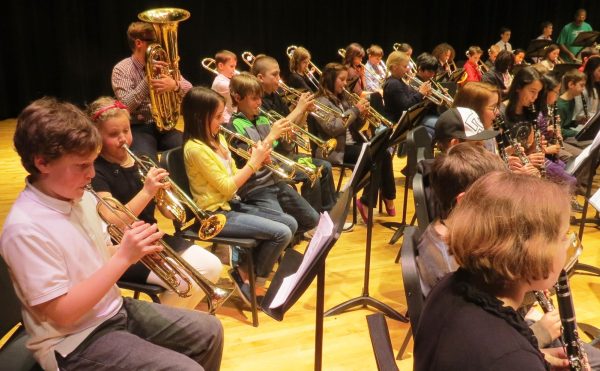MMS introduces new “Level Up Learning” program and new counselor
Mayfield is ahead of the game, introducing a new program before most schools. This program is a social emotional program called Level Up Learning.
Mayfield sixth- and seventh-grade students will experience this program for a full semester. Students will rotate between three teachers for six weeks each. Madame Vouk teaches World Cultures and Diversity, Mr. Face teaches Skills for Adolescents, and Ms. Ellis is teaches the Level Up Lab, which got its name because students learn new skills to get their brains to the next level.
Topics that will be covered include finding happiness, appreciating differences, dealing with stress, and building healthy relationships.
 With this new addition to learning comes a new teacher, Ms. Ellis. Born in Texas, she went to Mercer University in Atlanta. After earning her master’s in School Counseling from the University of West Georgia, she was a school counselor at an elementary school. She has also been involved with empowerment programs for middle and high school students for over ten years.
With this new addition to learning comes a new teacher, Ms. Ellis. Born in Texas, she went to Mercer University in Atlanta. After earning her master’s in School Counseling from the University of West Georgia, she was a school counselor at an elementary school. She has also been involved with empowerment programs for middle and high school students for over ten years.
Having just moved here from Georgia, she is fitting into Our House very quickly. “I am loving Mayfield,” she said. “I am still getting used to the new building and all the new faces, but I feel super welcome!” She says that she has always wanted to teach a course like this.
Why so much emphasis on social emotional learning? The statistics suggest a growing need to address students’ mental health. Referring to Livescience, 1 in 5 teens have a mental disorder. Additionally, 31.9% of teens struggle from anxiety or panic attacks, 19.1% struggle with ADHD, and 14.3% suffer from depression. As a result, 11.4% of teens use harmful substances.
“The overall prevalence of disorders with severe impairment and/or distress, marked by interference with daily life, was 22.2 percent, just higher than one in five teens,” reports Livescience.
To address statistics like these, schools must move past simply teaching academic skills and begin to teach life skills such as coping strategies and conflict resolution.
“Mayfield is very innovative, doing things that other middle schools are not,” explains Mr. Face. “We want young adults to have the tools to become successful adults. This includes a great understanding of relationships with ourselves and the people in our lives. We want kids to find happiness and have the tools to deal with the stresses that come in life.”
Some states are now making it a requirement to teach courses related to social emotional learning under the belief that mental health classes are just as important as regular health classes. Dustin Verga on namivirginia.org states, “We teach them how to avoid accidents, but we don’t teach them how to recognize the symptoms of mental illness. It’s a shame because, like cancer, mental health treatment is more effective if the disease is caught early.” In Virginia and New York, it is now mandatory for students to take a class that focuses on mental health awareness.
Mr. Face and Ms. Ellis agreed that classes such as their social emotional circuit should be mandatory.

Some schools may be skeptical if they want to invest in this course, but research shows that the investment has proven beneficial. According to edsurge.com, positive results have come from these classes. “The development of these skills has shown overall positive results, including better academic performance, improved attitudes, behaviors and relationships with peers, as well as deeper connection to school, fewer delinquent acts and reduced emotional stress (student depression, anxiety, stress and social withdrawal).”
The research revealed not only positive outcomes for the mind, but in academic classes as well. Edsurge.com also states, “Combining these skills with academic development creates high-quality learning experiences and environments that empower students to be more effective contributors in their classrooms today and in their workplaces and communities tomorrow.”
The 18-week social emotional circuit aims to proactively help students before they even need it by equipping them with tools and strategies for when they experience a mental struggle. While counselors often deal with problems when they have already started to affect someone, this class helps students begin to deal with problems themselves.
According to the MMS social emotional circuit staff, each student should take a new skill from this program, for example learning to accept others or deal with the stress of schoolwork. Ms. Ellis explained that “everyone has a skill they want to work on.” In short, Level Up Lab should, according to Mr. Face, create students who are “empathetic, understand themselves, treat others with kindness, and reach their full potential.”











